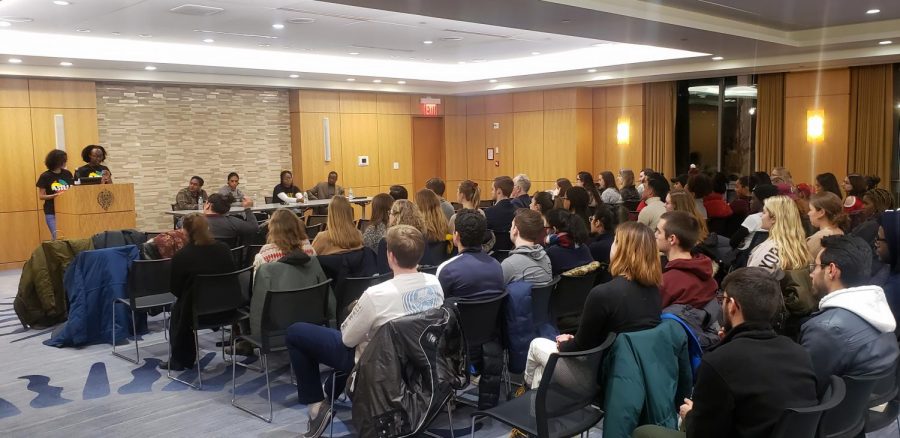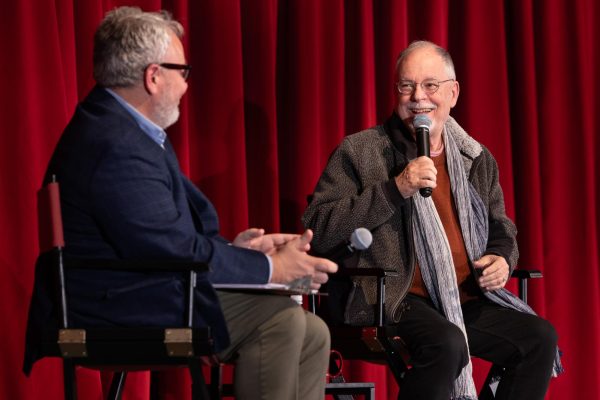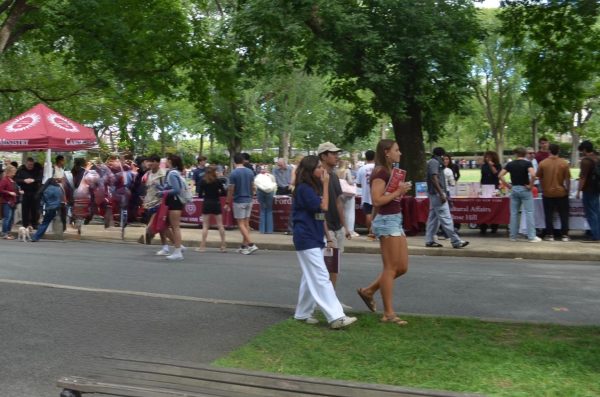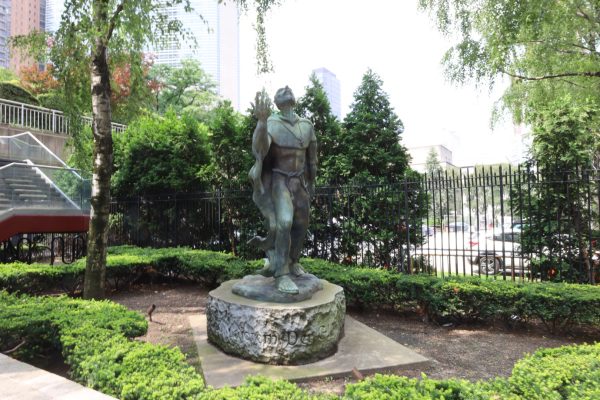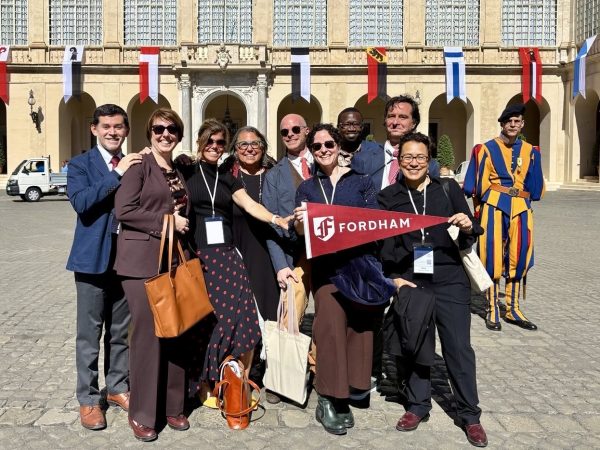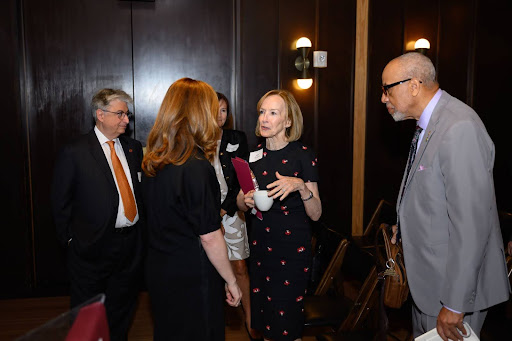ASILI Holds Being Black at Fordham Panel in Honor of Black History Month
By Jade Dyer-Kennedy
On Friday, Feb. 1, the Black Student Alliance (ASILI) hosted the “Being Black at Fordham” panel in Bepler Commons to discuss what its title would suggest: the realities of being black at Fordham University.
According to the ASILI executive board, the panel served to educate and reflect on the experiences of black students on Fordham’s campus. Its participants dedicated an hour and a half of their time, in an effort to share their experiences. About 40 students and faculty attended the event.
The panel consisted of Issy Asianah, FCRH ’19 and programmer for ASILI, Elicia Bates, FCRH ’19, and Jordan Dabney, FCRH ’21, and Clarence Ball, a business communications professor in the Gabelli School of Business.
The discussion began with two members of the ASILI executive board, who posited a question focused on the adaptation necessary to reside on campus: the responses from the panel varied.
Dabney and Bates said that their high schools shared a similar demographic and atmosphere as Fordham’s campus and found the changes relatively minor. Dabney said he still had observations concerning the race relations on Fordham’s campus.
“People of color here separate themselves.” Dabney said.
Ball found issue in the general population of New York. “New York, in general … it’s not the same community of minorities as in Texas,” he said.
Ball said although the demographic is different, he never experienced any notable issues; however, he joked that the nature of his faculty position guarded him from any unkind actions.
Asianah, an international Fordham University student from Nigeria, said she had a difficult time adapting to Fordham’s campus.
She said the demographic and setting of Fordham’s campus was a jarring contrast to the Nigerian landscape she was accustomed to. In describing the transition, she said she felt a lack of connection with her classmates and those surrounding her. Her reprieve was the close group of friends she now has.
Following the pre-formulated questions, the panel shifted to questions from the audience, allowing for an interactive discussion.
Jeffrey Pelayo, FCRH ’21, attended the event and said the panel had lasting effects.
“I thought the panel was really informative. It was nice hearing what black people in the Fordham community feel about their experiences living in New York,” he said.
Pelayo said students typically do not have the opportunity to have these discussion because it is not always appropriate to ask someone about their race.
“I’m grateful that the panelists were able to open up and be honest about being a person of color in a predominantly white school,” he said. “Overall, I’m hoping that it gave people something to think about, especially how they treat other minority groups on campus.”



































































































































































































